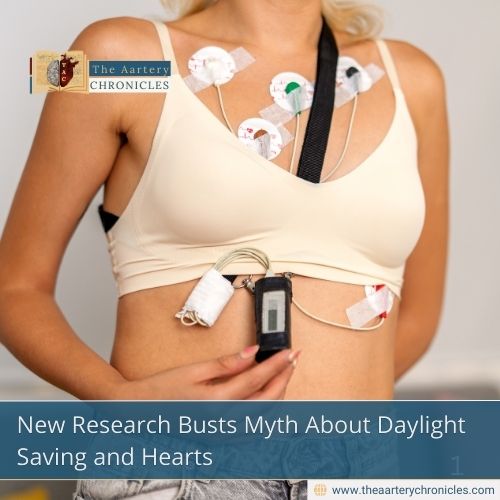

New Research Busts Myth About Daylight Saving and Heart..
A study led by the Duke Clinical Research Institute suggests that daylight saving time and heart attacks may not be as closely linked as once believed. Despite long-standing concerns that adjusting the clock might trigger more cases of acute myocardial infarction (AMI), or heart attack, the findings show no significant rise in incidence or poor in-hospital outcomes around the time of the clock change.
Why Daylight Savings Time Was Suspected to Affect the Heart
In the United States, clocks are shifted forward by one hour on the second Sunday of March and set back again on the first Sunday of November. This sudden change can disrupt sleep patterns and daily routines. Earlier studies from Sweden and the U.S. populations suggested that the springtime shift could briefly increase heart attack cases; one study even reported a 24% jump on the Monday after the clock change.
Because heart health is strongly influenced by sleep and circadian rhythm, researchers wanted to determine if the risk of heart attacks truly increases in the days surrounding daylight saving time.
How the Study Was Conducted
The study, published in JAMA Network Open, analysed data from 168,870 patients admitted to 1,124 hospitals across the U.S. between 2013 and 2022. The average patient age was 65, and about one-third were women.
Patients admitted the week before, during, or after the spring and fall clock changes were included. Researchers compared:
- Heart attack cases (AMI incidence)
- In-hospital death
- Stroke rates
- Treatment outcomes such as revascularisation and reperfusion
Statistical models were used to adjust for hospital differences, and sensitivity checks included states like Arizona and Hawaii, which do not observe daylight saving time.
What the Findings Showed
The results revealed almost identical numbers of heart attacks across the weeks before, during, and after daylight saving time:
- Spring clock change: 28,678 cases during the week of the change, compared with 28,596 the week before and 28,169 the week after.
- Fall clock change: 27,942 cases during the change, versus 27,365 the week prior and 28,120 the week after.
No meaningful differences were found in death rates, stroke events, or treatment outcomes. Even in Arizona and Hawaii, where clocks do not change, the patterns remained consistent.
While one year (2020) did show a temporary 21% rise in heart attack cases during the spring transition, this did not hold across the full 10-year dataset. Overall, yearly trends clustered close to neutral.
What This Means for Public Health
These findings challenge the belief that daylight saving time directly causes more heart attacks. The researchers concluded that daylight saving time and heart attacks are not significantly linked when looking at long-term, nationwide data.
This is reassuring for both patients and doctors, suggesting that while sleep disruption can have health effects, the clock change itself is unlikely to drive a surge in heart attacks.
Adjusting clocks for daylight savings time does not appear to increase the risk of heart attacks or worsen hospital outcomes, according to one of the most comprehensive studies to date.
Source: Inputs from various media Sources
I’m a pharmacist with a strong background in health sciences. I hold a BSc from Delhi University and a pharmacy degree from PDM University. I write articles and daily health news while interviewing doctors to bring you the latest insights. In my free time, you’ll find me at the gym or lost in a sci-fi novel.
- Priya Bairagi
- Health News and Updates,People Forum
- 18 September 2025
- 22:00








